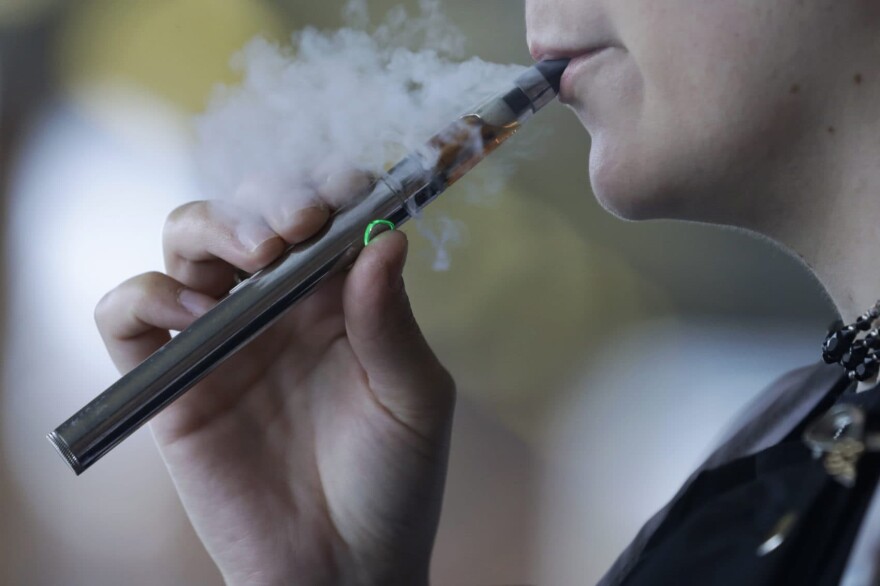There’s added urgency to the debate over vaping in Massachusetts after the state reported its first death: a woman in her 60s, from a lung illness apparently related to vaping nicotine.
News of the death came just days after Gov. Charlie Baker enacted a four-month ban on all vaping products, though that hasn’t stopped Massachusetts residents from traveling over the border to stock up on vaping supplies in New Hampshire.
But at least some public health researchers say politicians like Baker are focusing on the wrong issue. WBUR’s Morning Edition spoke to Dr. Michael Siegel, a professor at Boston University’s School of Public Health. He’s also worked as a tobacco control expert at the Centers for Disease Control. Siegel says Massachusetts health officials need to clarify the risks of vaping — or risk having people ignore it.
Here are experts of the interview, lightly edited for clarity.
Interview Highlights
On the cause of vaping-related illnesses
I think that in public health, we have to look at the overall data. And what the overall data tells us is in Massachusetts, of 10 confirmed cases [of vaping-related illnesses], nine [people] were reported to have admitted to using THC oils. [THC is the psychoactive component in cannabis.] The pattern that we’re seeing repeatedly across all the states is that these are predominantly people who have used products off the black market.
On why officials should differentiate between vaping THC and nicotine
I think that the message that’s going out to the public is that “vaping is bad, everybody just needs to stop vaping.” And I think that when you give out really vague messages, the public doesn’t respond to that. People need to know specifically what to avoid. It would be like if we had an outbreak of contaminated lettuce and the health department put out a warning saying, “Do not eat any vegetables.” That’s not helpful.
On whether the state should have waited to ban vaping products
So, I think that this is a very important principle in public health: when there is reasonable evidence that something is causing a disease, we take action at that point. And I think that right now, we have not only reasonable but very strong evidence that black market vaping products are responsible for this. And to try to lump nicotine products that are being sold by stores into that mix is very deceptive. And it really, I think, undermines the important message that the public needs to be getting, which is to avoid black market products, especially [those with] THC.
On the benefits of regulating vaping products versus banning them
When you have a regulated market, you know what’s in the products. You can control what the ingredients are. You can require the retailers to disclose the ingredients. When you have a black market, there is literally no way to regulate it. We saw this with alcohol prohibition. You know, when alcohol was prohibited, people started creating moonshine and that ended up being toxic. And so I think if we just ban these products, we’re going to have an even bigger black market.
But the second reason is it’s going to have negative repercussions for people who rely on these products, especially adults who have used these products to quit smoking. If we ban these electronic cigarettes, most of these ex-smokers are going to go back to smoking, and that is a public health disaster.
On if he’s a ‘lone wolf’ in singling out THC products
I’m not a lone voice in the sense that last Friday, the [Food and Drug Administration] issued a very clear statement saying, “Do not vape THC.” They didn’t say, “Don’t vape nicotine cartridges.” They didn’t say, “Stop buying products that are bought at stores.” They said specifically, “Stop buying black market products, especially those that contain THC.” So yes, there are some medical professionals who are trying to take advantage of this outbreak, I think, to get rid of e-cigarettes. But the FDA — they know the ingredients of all these products because the companies that are selling them had to disclose those ingredients. So I think that it’s time for the medical professionals to listen to what the FDA is saying.
This article was originally published on WBUR.org.
Copyright 2019 WBUR



